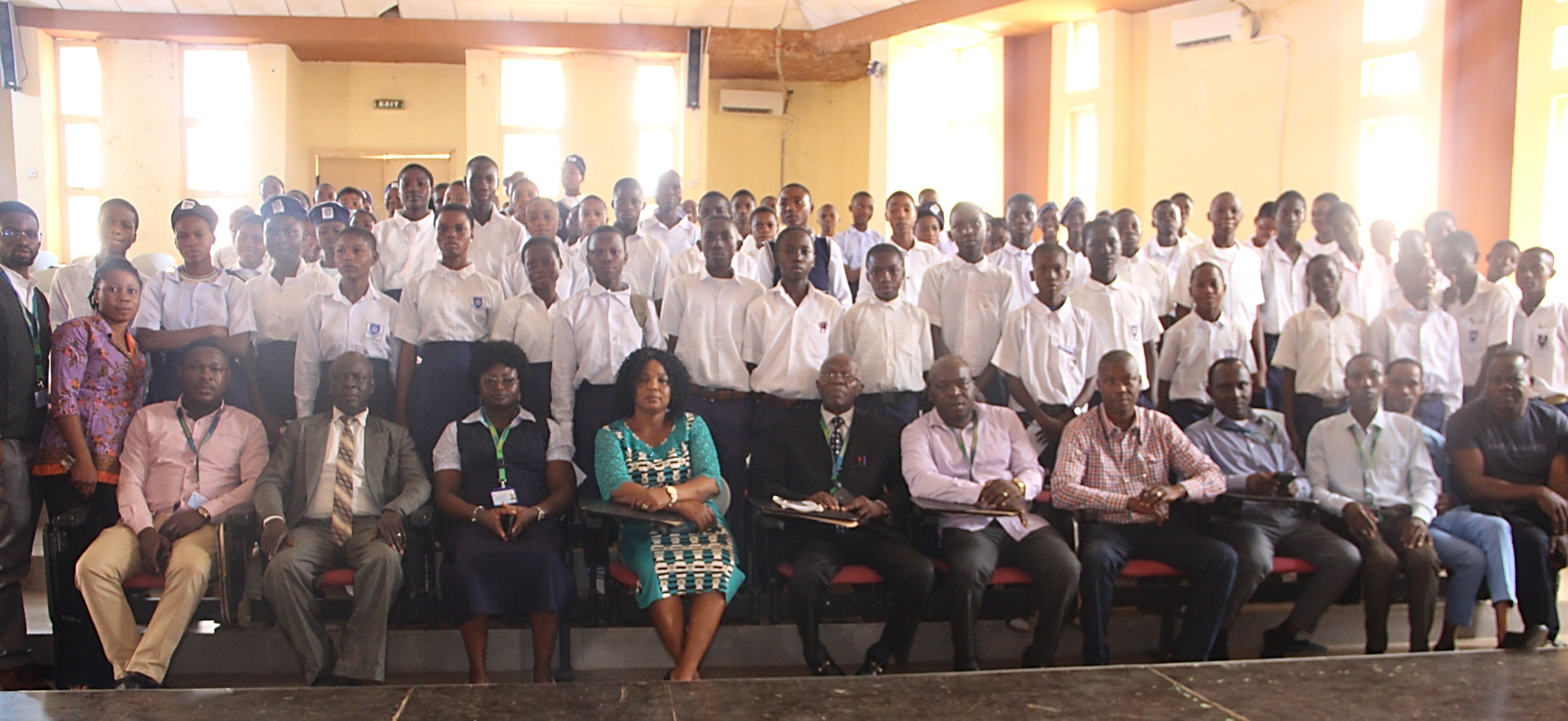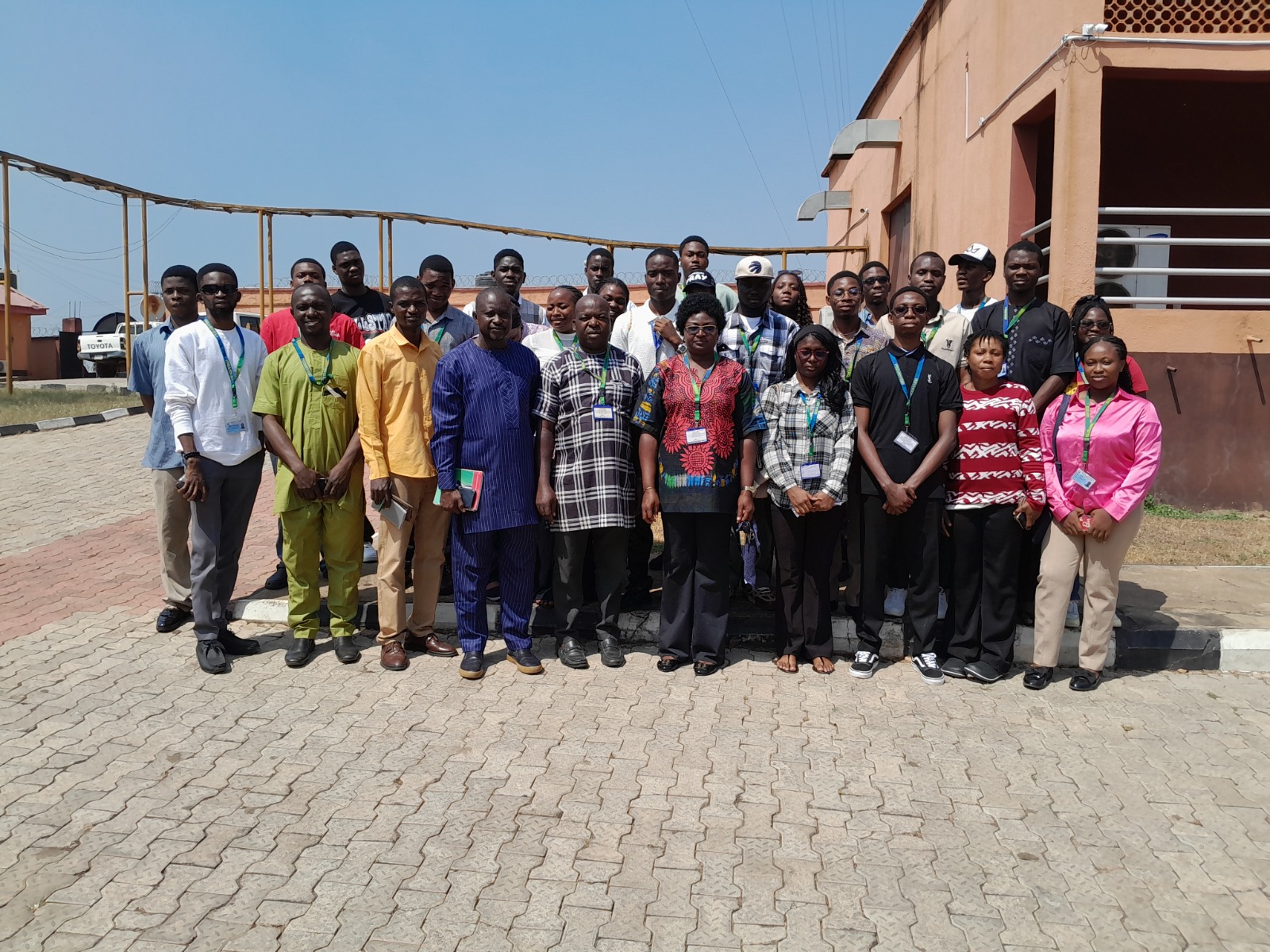The Information and Communication Engineering programme has full accreditation status from the National Universities Commission (NUC) and the Council for the Regulation of Engineering in Nigeria (COREN). The programme was last accredited by a team of accreditors from NUC in the November/December 2022 Accreditation batch in which the programme got a full accreditation status to run for a period of five (5) years while the team of accreditors from the Council for the Regulation of Engineering in Nigeria (COREN) visited the department for re-accreditation in October, 2023.
PROGRAMME EDUCATIONAL OBJECTIVES (PEOs)
The Programme Educational Objectives of the Information and Communication Engineering Programme as published in the programme handbook are:
PEO 1: To produce graduates who are highly proficient in principles and advanced practical knowledge of information and communication engineering to solve complex engineering problems.
PEO 2: To develop graduates who can apply analytical and creative thinking skills to produce innovative information and communication engineering solutions that address societal challenges in various industries.
PEO 3: To train engineers who are continuously in pursuit of professional development, research and collaborations to ensure they remain updated and relevant in the field of information and communication engineering.
PEO 4: To produce graduates who consider ethical standards, environmental welfare and sustainable practices while deploying information technology and communication solutions to meet societal needs.
PEO 5: To produce information and communication engineering graduates with the ability to function in multidisciplinary settings through the combination of effective technical, communication and leadership skills to drive organizational success.
PEO 6: Provide the engineering industry with graduates who are highly employable and adequately equipped with entrepreneurial skills to assume technical and managerial positions as well as meet the dynamic demands of the global information and communication industry.
PROGRAMME OUTCOMES (POs)
According to the Washington Accord Graduate Attributes adopted by the Washington Accord signatories, an engineer who is trained based on these attributes listed, can design solutions for complex problems based on the development of engineering activities that involve some or all the programme learning outcomes detailed below. These POs are the measurable statements that describe knowledge or skills that our students would achieve upon completion of their 5 Years Academic Program. All 12 POs defined in COREN Manual are embodied in the POs of the Department.
PO 1 - Engineering Knowledge
Apply knowledge of mathematics, natural and engineering, sciences, mechanical engineering fundamentals, and engineering principles to solve complex engineering problems.
PO 2 - Problem Analysis
Identify, formulate, conduct research literature, and analyse complex engineering problems reaching substantiated conclusions using first principles of mathematics, natural and engineering sciences and principles.
PO 3 - Design/Development of Solutions
Design solutions for complex engineering problems and design systems, components or processes that meet specified needs with appropriate consideration for public health and safety, cultural, societal, and environmental considerations.
PO 4 – Investigation
Conduct investigation of complex engineering problems using research-based knowledge and research methods including design of experiments, analysis and interpretation of data, and synthesis of information to provide valid conclusions.
PO 5 - Modern Tool Usage
Create, select and apply appropriate techniques, resources, and modern engineering and IT tools, including prediction and modelling, to complex engineering problems, with an understanding of the limitations.
PO 6 - The Engineer and Society
Apply reasoning informed by contextual knowledge to assess societal, health, safety, legal and cultural issues and the consequent responsibilities relevant to professional engineering practice and solutions to complex engineering problems.
PO 7 - Environment and Sustainability
Understand and evaluate the sustainability and impact of professional engineering work in the solutions of complex engineering problems in societal and environmental contexts.
PO 8 - Ethics
Apply ethical principles and commit to professional ethics and responsibilities and norms of engineering practice.
PO 9 - Individual and Teamwork
Function effectively as an individual, and as a member or leader in diverse teams and in multidisciplinary settings.
PO 10 - Communication
Communicate effectively on complex engineering activities with the engineering community and with society at large, such as being able to comprehend and write effective reports and design documentation, make effective presentations, and give and receive clear instructions.
PO 11 - Project Management
Demonstrate knowledge and understanding of engineering management principles and economic decision making and apply these to one’s own work, as a member and leader in a team, to manage projects in multidisciplinary environments.
PO 12 - Life Long Learning
Recognize the need for and have the preparation and ability to engage in independent and lifelong learning in the broadest context of technological change.
In the Department of Information and Communication Engineering, the students are trained for the award of B. Eng. degree in Information and Communication Engineering. Information and Communication Engineering involves the design, construction, installation, operation and maintenance of telecommunication systems. The teaching and research are based on sound academic foundation as well as practical orientation, integrated with hands-on training and industry-based learning. The programme exposes the students to current and emerging technologies in the control, design, analysis and applications of communication networks, specifically in the areas of networking, telecommunications, artificial intelligence, enterprise-resource planning, human-computer interaction, internet protocol, E-commerce, and integrated business systems, as well as, digital representation of audio, video and other multi-media. The students are also mentored in related industries on technology platforms that support business processes, managerial decision-making, and organizational communication.








.jpg)